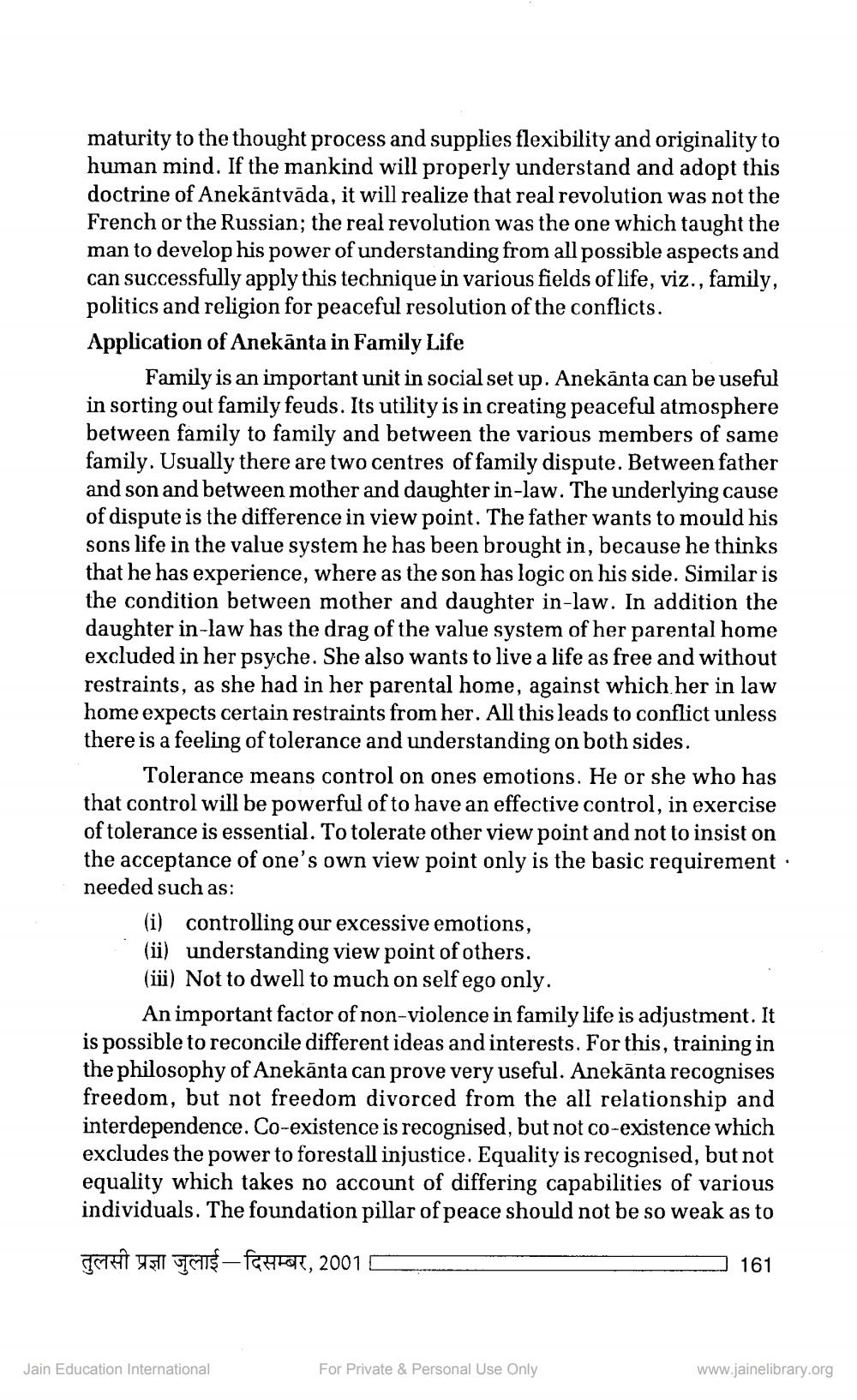________________
maturity to the thought process and supplies flexibility and originality to human mind. If the mankind will properly understand and adopt this doctrine of Anekāntvāda, it will realize that real revolution was not the French or the Russian; the real revolution was the one which taught the man to develop his power of understanding from all possible aspects and can successfully apply this technique in various fields of life, viz., family, politics and religion for peaceful resolution of the conflicts. Application of Anekānta in Family Life
Family is an important unit in social set up. Anekānta can be useful in sorting out family feuds. Its utility is in creating peaceful atmosphere between family to family and between the various members of same family. Usually there are two centres of family dispute. Between father and son and between mother and daughter in-law. The underlying cause of dispute is the difference in view point. The father wants to mould his sons life in the value system he has been brought in, because he thinks that he has experience, where as the son has logic on his side. Similar is the condition between mother and daughter in-law. In addition the daughter in-law has the drag of the value system of her parental home excluded in her psyche. She also wants to live a life as free and without restraints, as she had in her parental home, against which her in law home expects certain restraints from her. All this leads to conflict unless there is a feeling of tolerance and understanding on both sides.
Tolerance means control on ones emotions. He or she who has that control will be powerful of to have an effective control, in exercise of tolerance is essential. To tolerate other view point and not to insist on the acceptance of one's own view point only is the basic requirement needed such as:
(i) controlling our excessive emotions, (ii) understanding view point of others. (iii) Not to dwell to much on self ego only.
An important factor of non-violence in family life is adjustment. It is possible to reconcile different ideas and interests. For this, training in the philosophy of Anekānta can prove very useful. Anekānta recognises freedom, but not freedom divorced from the all relationship and interdependence. Co-existence is recognised, but not co-existence which excludes the power to forestall injustice. Equality is recognised, but not equality which takes no account of differing capabilities of various individuals. The foundation pillar of peace should not be so weak as to
CART 4511 1018 - fahymac, 2001 C
-
161
Jain Education International
For Private & Personal Use Only
www.jainelibrary.org




